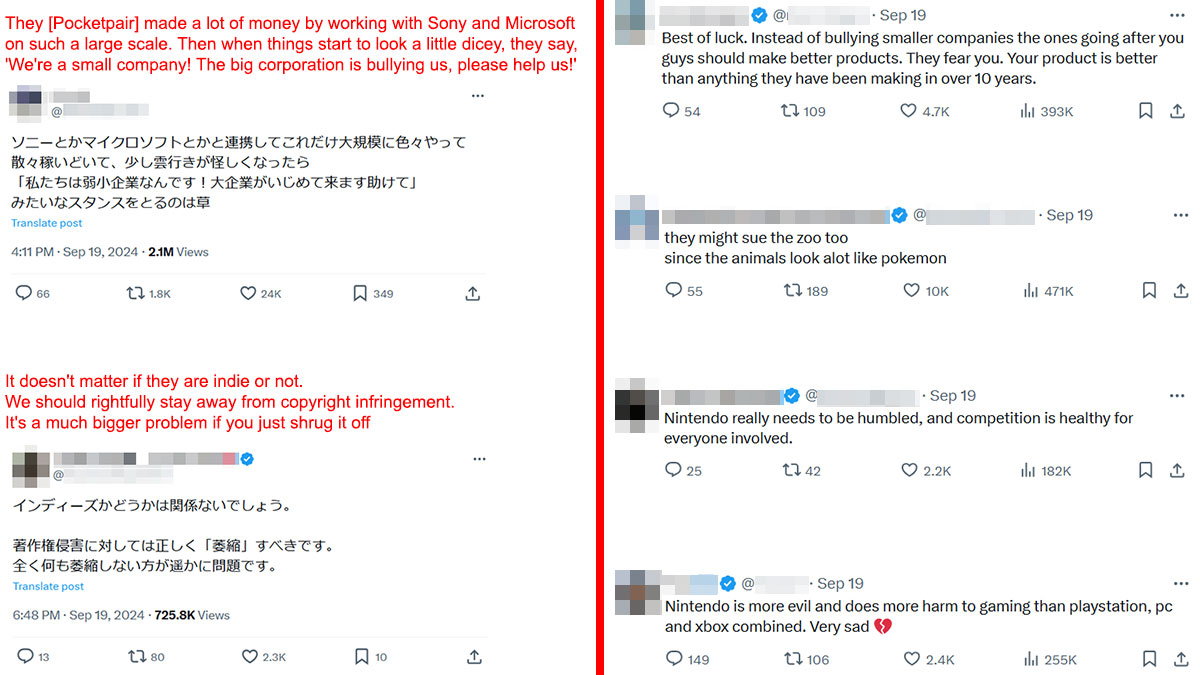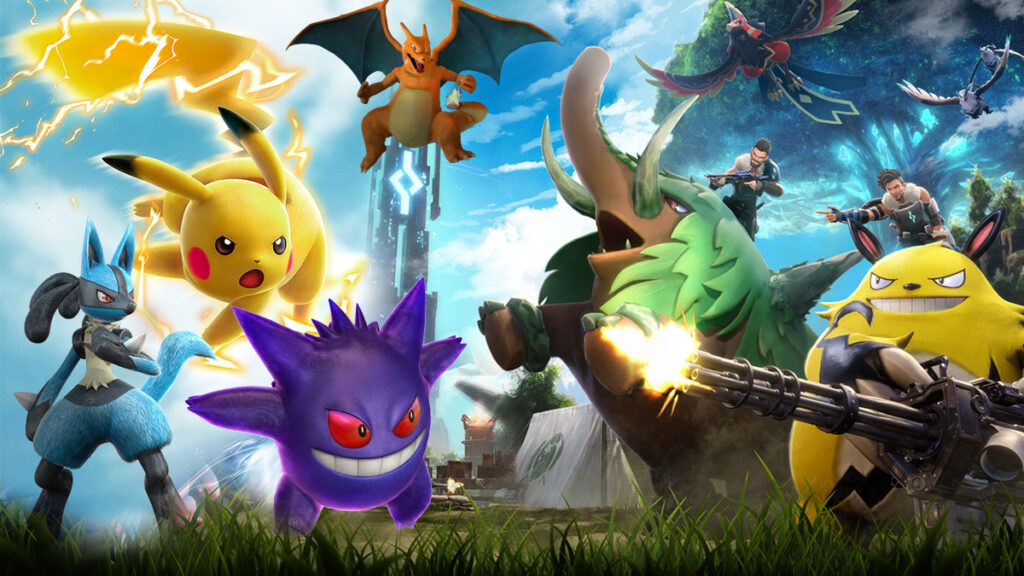The Mario creator is no stranger to legal battles; from taking down ROM distribution sites to confronting fellow Japanese game company Colopl. The latest controversy to hit the headlines is the lawsuit filed by Nintendo against Pocketpair, the developer of Palworld for alleged patent infringement. Nintendo claimed that the indie developer has infringed on patents related to game mechanics and character designs that are reminiscent of the Pokemon series.
In response, Pocketpair tweeted in English and Japanese that the company is “unaware of the specific patents” they’re accused of infringing upon. The Craftopia developer also stated that it’s ready to take on the multi-billion dollar corporation — to a mixed response, mostly from the Japanese playerbase.
“It doesn’t matter if they are indie or not,” wrote one X user in Japanese. “We should rightfully stay away from copyright infringement. It’s a much bigger problem if you just shrug it off,” they added. The tweet has gotten 2,300 Likes and 80 Reposts at the time of writing.
Another mockingly wrote, “They [Pocketpair] made a lot of money by working with Sony and Microsoft on such a large scale. Then when things start to look a little dicey, they say, ‘We’re a small company! The big corporation is bullying us, please help us!‘”
“Nintendo probably wouldn’t have taken notice [if it doesn’t look like Pokemon]. This is what happens when you think you can just do whatever you want. They even tried to sell merchandise,” diss another Japanese X user.

Judging from the popular replies to the Palworld lawsuit tweet, one side of the Pacific seems to lean towards Nintendo. The Japanese players are showing support for the gaming giant’s decision to protect its intellectual property rights. This is not entirely surprising, considering Nintendo’s long-standing cultural and economic impact on the Japanese gaming industry. After all, the company is based in Kyoto, Japan’s cultural capital, and has been running for 135 years since 1889.
Conversely, the Western fanbase has shown considerable support for Palworld. The game, described as “Pokemon with guns,” seems to have reignited interest in the Nintendo-dominated monster-collecting genre.
“Instead of bullying smaller companies, the ones going after you guys should make better products,” wrote an X user in English. Another one added that competition is “healthy” and Nintendo needs to be humbled from its cease-and-desist-trigger-happy nature.
Although there are many factors in play, this legal action has sparked a significant divide between the Japanese and Western fanbases. The discourse surrounding the Palworld vs Nintendo lawsuit might be heavily influenced by cultural perceptions and the value placed on innovation versus tradition.
In Japan, Nintendo’s roots run deep and there’s a strong inclination to preserve the integrity of established franchises. Meanwhile, the Western gaming community often embraces deviation from the norm, seeing it as a driving force for the industry’s growth. As the Palworld vs Nintendo lawsuit case progresses, it’ll also be interesting to see how these differing perspectives grow among the playerbase.







